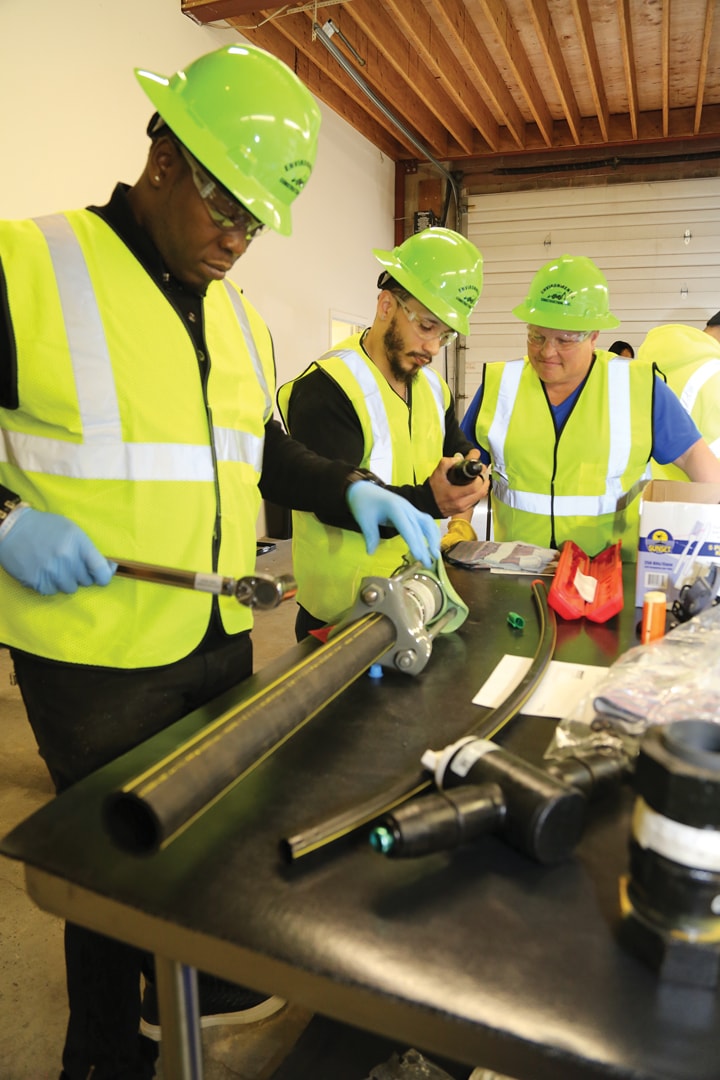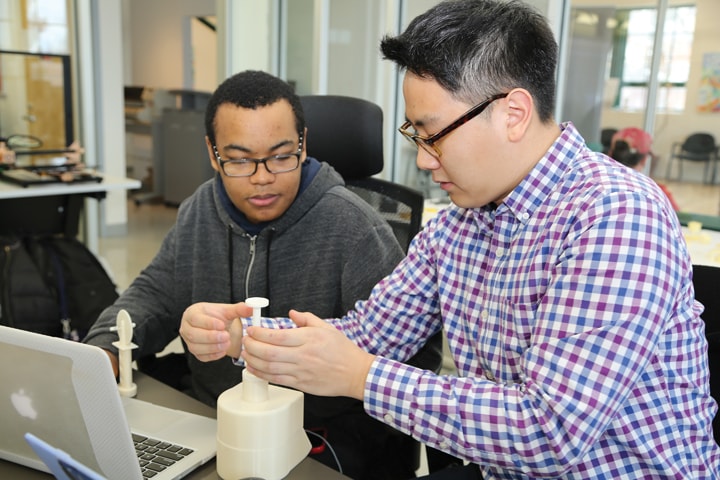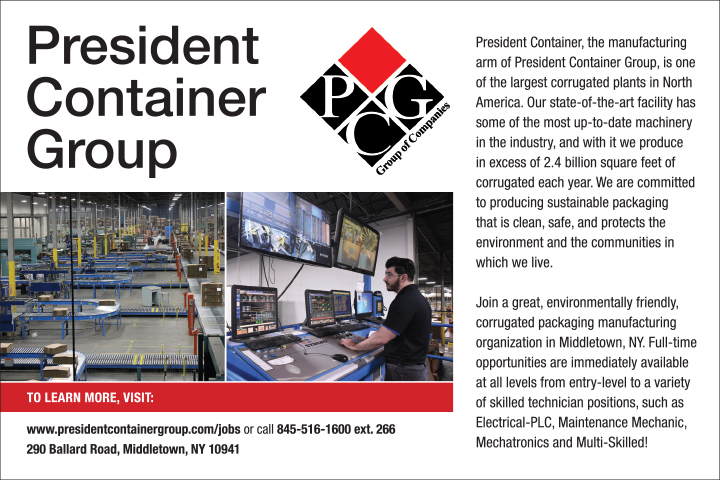
EDUCATION AND WORKPLACE
FUTURE OPPORTUNITIES | Dr. Michael A. Baston, President
When Elisabeth Kübler-Ross, in her 1969 book, On Death and Dying, proposed the five stages of grief and loss, she could not have foreseen the myriad challenges 2020 would present our region, our nation, and our world.
Although those who are grieving do not necessarily go through the stages in the same order or experience all of them, in many ways, and for a multitude of reasons, we all have been impacted by the confluence of COVID-19, its resultant economic upheaval, and structural racial issues which have created a “perfect storm.” Some are in the stages of denial and isolation or anger. Others are in the bargaining or depression stages. I would argue, however, that we must move to the acceptance stage.
We must accept the death of outdated thinking that has, for far too long, hindered the limitless growth potential of all people, particularly given the historical realities of bigotry, prejudice, discrimination, and inequity in all forms, both institutional and individual. We must accept the death of the misconception that college should be limited to the privileged few or that the community college is in some way “inferior.” We must accept the death of the notion that colleges should sanction directionless wandering instead of placing greater emphasis on career development and exploration, values formation, citizenship, and a respect for the dignity of work – foci that have been considered by some in academia of lesser value than allowing students to use college to “find themselves.”
Regional survival of the effects of the perfect storm, while an ideal goal, is an anemic aim. Working together, partners in government, educational institutions, business, industry, and community-based organizations, leaders can address inequities, promote educational opportunities, and ensure economic recovery – even in a pandemic, if we reimagine the opportunity ecosystem in the Hudson Valleys of our nation. A commitment to inclusive excellence, educational access, programmatic diversity, and the alignment of work and learning is required.
COMMITMENT #1 – INCLUSIVE EXCELLENCE
Hard realities exist. Structural racism, based on historical policies and practices and its subsequent inequitable outcomes in economic wealth, health, education, and life expectancy, has not yet been fully dismantled. Implicit bias—the unchallenged narratives and assumptions about historically marginalized people—is insidious and is still today often unrecognized by well-meaning people. We, however, do not have to accept that these realities cannot be addressed. We must reassert our commitment toward eradicating racism and supporting social justice, and, more importantly, set forth a strategy to effect reform and achieve inclusive excellence so that the workforce of tomorrow is stronger. Our workforce needs not only to have the knowledge and skills necessary to move forward, but the equal footing that will allow everyone’s talents to rise to the top so they can become their best version of themselves.
I understand that the challenge is great, but the potential of our people is even greater. I am a community college president in the eye of the storm, but we have not shrunk from the enormity of the moment because of the size of the task. Community colleges have always reflected the American promise of education – equal access and equal opportunity – to offer a beacon of hope to those who strive to improve their lives. Our current global crisis has strengthened our collective resolve and refocused our mission to keep that beacon shining brightly, leading us all safely into a better, more equitable world. But, as they say, talk is cheap—we must commit to taking steps beyond statements to achieve any lasting change. Here is how we can do that from the community college perspective, which can be replicated by others in our opportunity ecosystem, including business and industry.

We began developing an actionable plan at RCC last June. We established The Steps Beyond Statements Working Group to review the legacy of diversity efforts led by the College’s former Diversity Committee to build on their outcomes to reflect current realities. The group has been charged with developing a new college-wide plan with specific outcomes that are measurable, using key performance indicators to be reported in an equity scorecard, including:
- Conducting an institutional self-assessment on equity practices.
- Developing equity practice expectations in the non-academic spaces of the college.
- Identifying campus-based and external experts with experience in helping faculty and staff better understand diversity, equity, and inclusion space issues.
- Creating a comprehensive process for monitoring, reviewing, and updating the equity scorecards and related activities.
Whatever the field of endeavor, statements in opposition to structural racism, hatred, and bigotry must be followed by steps that evidence the true nature of our commitment. What we do speaks much louder than what we say. Inclusive excellence must be a priority of all the members of Hudson Valley’s opportunity ecosystem.
COMMITMENT #2 – EDUCATIONAL ACCESS AND PROGRAMMATIC DIVERSITY
Another hard reality is that community colleges have gotten a bad rap, mostly from those who have never been to one.
Community Colleges are not “safety school” options. Rather, community colleges are a strategic choice for families, particularly given COVID-19 and the nation’s current economic uncertainty.
Our campus is open to everyone. Many RCC grads have gone on to graduate from Yale, Brown, and other prestigious institutions.
Indeed, nearly half of all bachelor’s degree earners in the United States have attended community colleges at one time or another, and the pandemic is proving just how valuable our institutions are to the entire educational ecosystem. Community colleges not only provide a quality, affordable education close to home, but we also play an essential role for individuals looking to retool and retrain for new careers as the workforce landscape changes in this time of uncertainty and as we navigate a culture change as a nation. Our programmatic diversity, given our cost, is unparalleled.
While students need to be ready for college, we understand it is just as important for colleges to be “student-ready” — meeting students where they are and offering career options that match their needs and desires to the jobs that are and will be available.
RCC is at the forefront of developing skill-specific programs. In addition to two-year degrees in business, education, and nursing programs, RCC’s Career Skills Academy was established last year to offer skill-specific programs to fill “middle-skills” jobs—those who require more education and training than a high school diploma but less than a four-year college degree and which pay a familysupporting wage. Our Career Skills Academy provides work-ready programs for students of any age to gain the necessary skills for a new job or enhance an existing career. The programs are designed to teach specific skills in a concentrated time frame so students can start a new career, earning a good salary in just a few weeks or months. Classes in IT support, computer-assisted design, social media branding and marketing, professional bookkeeping, medical call center customer service, gas pipeline operations, and more are available.
COMMITMENT #3 – WORK AND LEARNING ALIGNMENT
A final hard reality, we can no longer allow a disconnect between education and career trajectory to exist if the nation is to retain its competitiveness globally. The future of work and learning are intertwined, and we remain steadfast in our goal of building bridges to mobility, opportunity, and success. Career pathways matter, particularly now as critical industries like advanced manufacturing, have emerging opportunities that will require an educated and skilled workforce.
RCC’S partnership with T-SEC, The Strategic Economic Consortium, has made a significant difference. The partnership helped to develop, inform, and support Career Skills Academy offerings, particularly for the Advanced Manufacturing sector, the Assistive Technology, and Healthcare sector, and the Auto industry sector. RCC has a T-SEC funded 3D print lab at our Haverstraw extension campus, making access to and training on the technology available to educators, students, and the regional manufacturing and business communities.
Currently, the print lab works in partnership with Helen Hayes Hospital’s Physical Therapy division to prototype several different assistive technology devices, such as a utilitarian joystick.
To reimagine the opportunity ecosystem a commitment to inclusive excellence, educational access, programmatic diversity, and the alignment of work and learning is required.
The RCC Hospitality and Culinary Arts Center was established in response to the burgeoning growth in restaurants and tourism in the Hudson Valley and the resulting need for more qualified workers. It offers fasttrack culinary arts certificate programs. Housed in the same location as Hudson Market on Main, a collaborative effort between Flik International and RCC, students contribute to the daily menu offerings of the Market and prepare packaged and canned items to understand marketing and selling in a retail environment. The Center will also offer students an opportunity to operate their own pop-up restaurant when the window for that opportunity is once again safe, providing them with real-world experience that will launch them into careers in the culinary arts at all levels. When colleges, businesses, and industry partner, the community wins. The economic vitality of a community is inextricably tied to multiple stakeholders working together to ensure that opportunity exists for all.
CONCLUDING THOUGHTS
As we navigate this perfect storm and move through today’s choppy waters with its hard realities, we must have high hopes. For our part, RCC moves forward with the steadfast goal of supporting students today to make a better life for themselves and their families tomorrow. We do so with the knowledge that we can set the standard for providing quality career options for learners of all levels and all ages. We do so with pride, knowing we are shattering the misperceptions about community colleges. We move forward into the dawning of a new era, one that can and will offer inclusive and equitable options for all.
Dr. Michael A. Baston, President, Rockland Community College.
Named as one of the country’s most Notable Education Leaders of 2017 by Diverse: Issues in Higher Education. Author of The Handbook for Student Affairs in Community Colleges.






